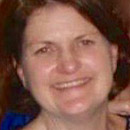If you have ever had genetic testing and counseling, you probably have some understanding of the process, but likely have not given much thought to how a person actually becomes a genetic counselor. Who are genetic counselors? What do they do? More importantly, how can they change your life?
Who Are Genetic Counselors?
Genetic counselors are medical professionals with master’s degrees. They attend graduate programs accredited by the American Board of Genetic Counseling, which are a combination of advanced scientific and medical classes and clinical training. Studying the psychological impact of delivering genetic information and the effects of diagnoses and genetic testing results is also a fundamental part of every genetic counseling program.
In addition to meeting directly with patients, genetic counselors have various responsibilities. They coordinate medical care with other members of the healthcare team; find the right testing laboratory; call patients with genetic testing results; write patient letters; coordinate genetic testing and counseling for patients and their family members; work on insurance issues; research answers to client questions and find resources for their patients.
Genetic Counseling Can Be Life Changing
Rina Varley received a diagnosis of General Anxiety Disorder (GAD) after having symptoms since childhood. Having a name for her symptoms helped; it validated her concerns and it helped her realize that she wasn’t the only one. Over time, however, Varley began to wonder what caused this disorder. “I was concerned that it was because of something that I did,” she says.
Varley discussed her concerns with a friend who suggested that she talk to a genetic counselor. During a series of phone calls, Varley’s genetic counselor asked about her medical history, collected a family history and discussed her concern before explaining the genetic basis for her disorder. The genetic counselor made it clear that there was nothing that Varley did — or did not do — to cause her to have GAD. Hearing those words was life-changing, Varley says. Knowing her disorder had a genetic basis lifted the guilt and shame that she had been carrying and freed her to truly acknowledge and accept her condition, allowing her to move forward in her life.
Are All Genetic Counselors the Same?
While the genetic counselor that worked with Varley specialized in psychiatric genetics, other genetic counselors specialize in areas such as prenatal testing, infertility and preimplantation genetic testing (PGT). They play an important role in helping people become pregnant and managing their genetic risk. Genetic counselors that specialize in PGT have the same training as all genetic counselors, but they also have expertise in infertility and reproductive biology, as well as advanced knowledge of the techniques and testing involved.
Who Should See a Genetic Counselor?
According to the Centers for Disease Control, there are many reasons to see a genetic counselor. Some of these reasons include:
- If you, your child or relative are diagnosed with a genetic disorder
- If you have questions about genetic testing results
- If you are having difficulty getting pregnant
- If you had a previous pregnancy affected by a genetic condition or birth defect
- If you are thinking about starting a family
Most people who see genetic counselors are referred by their physician or find a counselor through the National Society of Genetic Counselors website. Genetic counselors usually take medical and family histories, answer patient’s questions and provide genetic information in a way that is personalized to their concerns.
Starting a Family
The decision to start a family is complex at the best of times, but when you are dealing with infertility or a genetic diagnosis, it can become daunting. A genetic counselor is a valuable member of your healthcare team. They act as your guide and provide you with the personalized knowledge needed to help you on your journey to have a family.
[cf]skyword_tracking_tag[/cf]

Kathleen Fergus, MS LCGC is a freelance medical writer in northern California. She is also a genetic counselor with over twenty years clinical experience with an extensive background in many medical specialties including oncology, prenatal screening, carrier screening, DNA testing methodologies, newborn screening, public health genetics and rare genetic diseases. Her interest in genetics, health communications strategies and health literacy evolved into a freelance medical writing career. She has written for VeryWell, Exploragen, ThinkGenetic and many other publications.
